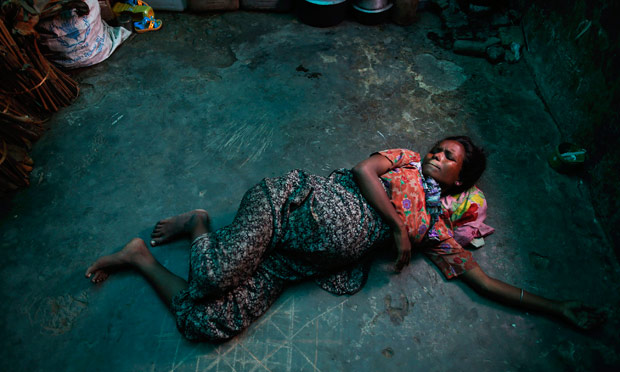Women in Burma could be forced to wait up to three years between pregnancies, thanks to a controversial new law.
Human
rights groups claim the law is targeted at Muslim women in the
Buddhist-majority nation, in the latest act in a long history of
religious persecution.
Thousands
of Rohingya Muslims have fled the nation, where the government refuses
to accept them as citizens and has rendered them stateless.
The law,
brought in last month by the government and backed by ultra-nationalist
Buddhist groups, allows officials to restrict the birthing rights of
women.
But it risks causing an even greater rift between faiths in the country that has already been wracked by religious violence.
YEARS OF ROHINGYA PERSECUTION
The origins of the Rohingya Muslims are still widely debated.
The
Rohingyas claim that they originate from the Rakhine state, which saw
some of the worst religious violence in the June 2012 riots.
But
the government insists that the Rohingya are Bengali migrants who
illegally entered the country, which is why the government is refusing
to accept the Rohingya as citizens.
The ethnic conflict – in a nation that is home to 17 ethnic armies – has sent thousands fleeing throughout Southeast Asia.
Ethnic riots were sparked in June 2012 between the minority Rohingya Muslims and the Buddhist majority.
The worst violence was seen in the impoverished state of Rakhine, near the Bangladesh border, which the Rohingya call home.
You May Also Like: Helpless Burma Muslims, Awaiting for Islamic World
Human Rights Watch says that: ‘After violence erupted between Arakanese Buddhists and the long-persecuted Rohingya Muslims, state security forces took part in abuses against the Rohingya.’
This
week Burma has resumed a controversial process that could see
citizenship granted to the Rohingya people, who have been without an
official country for years.
Religious
riots in the country exploded in June 2012 between Rohingya Muslims and
Buddhists, causing the deaths of hundreds of people and the
displacement of tens of thousands.
Although
the wording of the law does not specifically target Rohingya Muslim
women, human rights groups insist that the law is intended to further
restrict the rights of the already persecuted religious group.
Mark
Farmaner, Director of Burma Campaign UK, said that the new birth
restriction laws were a recommendation in a Burmese government report
into the anti-Rohingya violence in 2012.
He
told the MailOnline: ‘The Burmese government passing laws on when
Rohingya people can have babies is just the latest in a series of
repressive laws designed to drive all Rohingya out of Burma.
‘There are laws on everything from needing government permission to get married to having their right to vote taken away.
‘Kids don’t even have the right to travel to a neighbouring village to play football.
‘Laws like this are one of the reasons why we are seeing thousands of Rohingya fleeing Burma by boat.’
Officially,
some four per cent of Burma’s 51.5 million-strong population are
Muslim, but the actual number is thought to be higher.
The
law is the first in a series of race and religion bills that are seen
to encourage religious and political violence in the country.
David
Mathieson, of Human Rights Watch, told the MailOnline: 'I think the
race and religion protection laws' are the result of rising
ultra-nationalism and extremism, and have a disturbingly anti-Muslim
current.
'The
laws really are predicated on further marginalising the Muslim
minority, and there are well-grounded fears that they will be misused by
the government.
'The
increasing exodus from Arakan State has to do more with systematic
repression of the Rohingya minority over decades, a protracted and
violent statelessness that only tightens its grip, leaving the Rohingya
with few options but to flee.
'But
these laws, population control particularly, will further marginalise
the Rohingya, adding an extra dimension to their repression that will
likely continue to force people to flee.'
Under the new law, local authorities will be given the power to carry out surveys to determine if their region is ‘unbalanced’.
Factors will include large number of migrants, a high birth rate or a fast population growth rate.
It is not clear what the punishment will be for breaking the law.
The law has been compared to China's one-child policy, introduced in 1978 as a device to control China's swelling population.
The policy restricted any couple from having more than one child, but led to a dramatic increase in femicide.
But
while China's birthing policy was brought in as a necessary measure to
prevent the population explosion that was bringing the country to its
knees, rights groups claim that Burma's is nothing more than a new means
of persecution.
Mr
Farmaner continued: ‘The laws don’t specifically name the Rohingya or
anyone else, the Burmese government is much smarter than that. They
frame things in non-specific language all the time in order to try to
avoid pressure and criticism.



